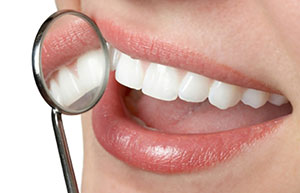
A dental cavity is when the hard surface of a tooth develops tiny openings or holes. These are also called dental caries or tooth decay, and they are caused by several factors, including:
Any one or more of these can cause tooth cavities. You can get them without necessarily doing any of these things, however, so don’t assume that because someone has cavities it means they aren’t maintaining good oral hygiene.
Cavities can develop suddenly and unexpectedly. If you find a cavity starting, the earlier you get dental treatment the better. If you then find yourself getting another, it’s worth looking at your environmental factors to see if something has changed. Did you begin using a new medication, for example? Are you having a snack before bedtime after brushing your teeth? Are you experiencing more stress than usual currently? Any of these can result in an unexpected batch of tooth cavities.
Have you suddenly got toothache and discovered a cavity? You might be wondering how it happened so quickly you didn’t even notice it until the pain began. Every cavity is different and the time it takes to form varies from 6 months up to 4 or 5 years before a cavity needs treatment. It forms faster or slower depending on the conditions in your mouth. Factors like your acidity levels, the quality of your tooth enamel, and whether it develops in the enamel or the tooth pulp can affect it. The enamel is thinner near the gumline, so cavities form faster at the base of the teeth than if they are located near the top.
This is one of the reasons why dental checkups are so important, because your dentist can spot the signs of a cavity starting long before you’re likely to realize it. Regular teeth cleanings, too, help to remove any plaque build-up that harbours bacteria, which reduces the risk of a cavity developing at all.
Prevention of Tooth Cavities
On average, adults aged between 20 and 64 lose 3.28 teeth over their lifetime because of tooth decay, while needing 13.65 treatments for the condition according to the U.S. National Institute of Dental and Craniofacial Research. Minimize your risk for cavities by focusing on prevention, by:
Foods such as fibre-rich fruits and veges, calcium-laden foods, unsweetened drinks, and sugarless gum all help to fight tooth decay. Consider getting root planing and scaling at regular intervals to prevent oral bacteria from taking over.
If you discover the existence of tooth decay early enough, you can stop it and even reverse it at that point. Tooth enamel is able to repair itself using minerals in your saliva along with fluoride from toothpaste or other sources. To do this, you need to be aware of potential cavities and get early treatment for them.
It’s best to schedule regular appointments for dental exams and professional teeth cleanings, so you can get a professional opinion about the state of your oral health. This can help you avoid the pain and suffering of toothache or gum infection, and lower your potential need for fillings, extractions, and procedures like root canal therapy.
For more information on how tooth cavities develop and ways to prevent tooth decay, please book an appointment with our dentists in Scarborough at 416-267-4661, or click here to book online.
Do you ever feel nervous about dentist appointments? Rest assured: we cater to nervous and anxious patients in a gentle and considerate manner. Call us now to schedule a free consultation!